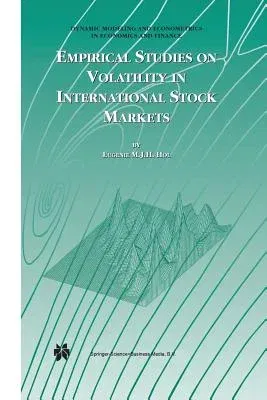Financial market volatility plays a crucial role in financial decision
making, as volatility forecasts are important input parameters in areas
such as option pricing, hedging strategies, portfolio allocation and
Value-at-Risk calculations. The fact that financial innovations arrive
at an ever-increasing rate has motivated both academic researchers and
practitioners and advances in this field have been considerable. The use
of Stochastic Volatility (SV) models is one of the latest developments
in this area. Empirical Studies on Volatility in International Stock
Markets describes the existing techniques for the measurement and
estimation of volatility in international stock markets with emphasis on
the SV model and its empirical application. Eugenie Hol develops various
extensions of the SV model, which allow for additional variables in both
the mean and the variance equation. In addition, the forecasting
performance of SV models is compared not only to that of the
well-established GARCH model but also to implied volatility and
so-called realised volatility models which are based on intraday
volatility measures.
The intended readers are financial professionals who seek to obtain more
accurate volatility forecasts and wish to gain insight about
state-of-the-art volatility modelling techniques and their empirical
value, and academic researchers and students who are interested in
financial market volatility and want to obtain an updated overview of
the various methods available in this area.


